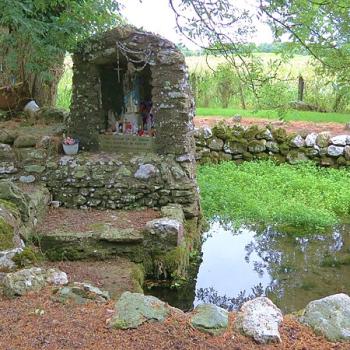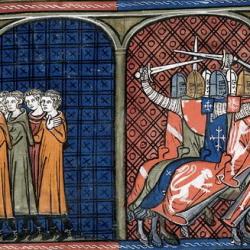Sometimes I wonder whether or not a college is still the best place to pursue a life of the mind. This leads me to question my vocation as a college teacher, especially when I find that there is often more intellectual curiosity outside of the academy.
Yet, at the risk of sounding naïve, I still hold out hope that these kinds of Juntos can exist, especially in the kind of residential liberal arts college where I teach.
This hope was rekindled a few years ago when a group of students were sufficiently inspired by Franklin to form a Junto of their own. These students met several times a week over lunch in one of the college eateries. They would occasionally report back to me on the nature of their discussions, but I largely remained out of it. I wanted them to have a professor-free space to converse. Over the course of the academic year they developed a real intellectual community. Not only did they debate things like immigration policy or the meaning of the "American Dream," but they strengthened their friendships, bonded as group, and experienced college in a way that most of their fellow students did not. In the process, they were educated. I think that they would also say that they learned how to worship God with their minds.
In the spring of their senior year, several of the members of this Junto approached me after class with an invitation. They wanted to know if I would like to "sit in" on one of their final meetings. The semester was ending and they would be graduating and getting on with life. Needless to say, I accepted the invitation. We met for about an hour, ate bad hamburgers and soggy french-fries, and talked about the values that undergird the culture they would soon enter as new college graduates. I don't remember a lot about the specifics of that conversation, but it was one of the greatest moments of my teaching career thus far.
The members of that Junto occasionally stop by to say hello. They have been out of college for five years now, but our conversations pick-up right where they left off. I consider them my friends. We worship together often—with our minds (Luke 10:27).
Benjamin Franklin was not an evangelical. His optimism and belief in unending progress was not always compatible with the Christian belief that the world is sinful, broken, and in need of redemption. But Franklin understood that the life of the mind was cultivated in community. His Junto was a kind of intellectual equivalent to the proverb, "As iron sharpens iron, so one person sharpens another" (Proverbs 27:17).
Have you started a Junto yet? If so, I would love to hear about it!





